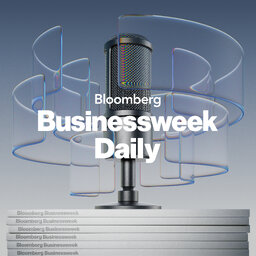The Elevator Pitch for Female VC Funding
Watch Carol and Tim LIVE every day on YouTube: http://bit.ly/3vTiACF.
Trinny Woodall, CEO of Trinny London, discusses the global beauty brand and her efforts to close the gender gap in VC funding.
Hosts: Carol Massar and Tim Stenovec. Producer: Paul Brennan.
In 1 playlist(s)
Bloomberg Businessweek
Listen for reporting from the magazine that helps global leaders stay ahead. Hosts Carol Massar an…Social links
Follow podcast
Recent clips

Introducing: Bloomberg This Weekend
01:08

Instant Reaction: US, Israel Attack Iran as Trump Urges Regime Change
25:54

Bloomberg Businessweek Weekend - February 27th, 2026
38:36
 Bloomberg Businessweek
Bloomberg Businessweek